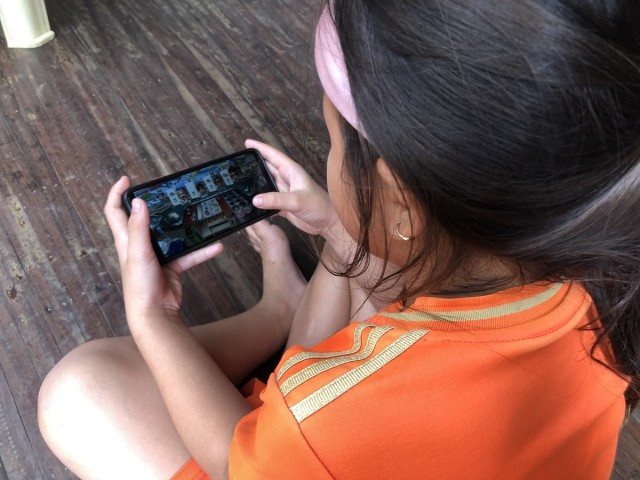Parent Engagement with Children Online Learning Is Important

- Sao Sokeng & Teng Yalirozy
- May 28, 2021 3:59 AM
NGO says Cambodian children have been online abuse victims
PHNOM PENH--Lack of time and control over the use of technology is putting children at risk of many forms of online abuse.
How should parents monitor and prevent danger when their children are taking online classes? How many parents notice child abuse through social media? How many parents know if their children are being tempted by strangers on social media?
Executive director of NGO Action Pour Les Enfants (APLE) Cambodia Samleang Seila said parents and guardians of young children should set up a security program in their smartphones and computers or wi-fi system in the houses.
“Parents with teenagers should advise them to use the internet and social media properly,” he said.
A new APLE report says a number of Cambodian children have become victims of internet abuse.
Some young children receive intimidating messages through social media without their parents knowing, it says.
Others may meet strangers who pretend to be children and ask for nude photos while they are playing online games.
Yim Sotheary, a mother of two children said she was always with her children when they were taking online classes. Teaching and guiding children are obligations for all parents to prevent online abuse, she said.
She feared that her children would use smartphones the wrong way and face online abuse so she set a schedule between education and entertainment.
Her phone consists mostly of educational and work-related applications. Each application is set up with a password so that her children cannot use them without permission.
“I only give my phone to them when they have to take online classes and watch their teacher’s videos,” she said.
“I let them watch entertainment videos only one hour a day. My children and I are always in the same room when they study so that I know everything they are doing.”
Khieu Thida, a mother of four children, said three of her children had their own phones and computers, as well as Facebook accounts to study online. Her youngest child was not allowed to use the phone.
“They started to use Facebook when Covid arrived because they need to have Facebook accounts to participate in online classes,” she said.
“I don’t want them to use Facebook. However, it is a requirement of their school.”
Although the internet brings a lot of benefits and convenience, it can harm younger users if parents do not educate their children to use it properly, she said.
“I’m always checking their Facebook accounts and being attentive to what they want to share on their newsfeeds. I also try to teach them about threats or sexual abuse.”
Samleang Seila encouraged parents to use gentle approaches to educate children rather than blame them if they face any abuse.
“If parents scold children, it makes the children feel uncomfortable about discussing solutions with parents, so children will hide their problems,” he said.
“Some cases lead to self-harm and suicide due to family pressure. Therefore, parents should use open approaches to encourage children to discuss their problems.”
Chea Vandeth, Minister of Post and Telecommunication, said cyberbullying of children is on the rise around the world, including in Cambodia.
Twenty-six percent of internet users in Cambodia have experienced online harassment, of which children are the vulnerable group, he said.
Vandeth urged parents to prevent incidents and follow the FB page Kit Kou Kon and relevant ministries to find out about protecting children from online abuse.
Education Minister Hang Chuon Naron has said the internet is significant for children’s education. However, parents, guardians, and teacher should pay more attention to it to avoid harm.
“When students use the internet, they are exposed to a number of dangers, such as threats, fraud, sexual harassment and inappropriate content,” Naron said in the message posted on it Kou Kon.
‘Students should be careful and tell parents, guardians and teachers if they encounter problems.”
Rim Ratha, a teacher at Hun Sen Rota High School in Kandal province, said he set a clear schedule to care of his children despite his busy job.
He said his two younger sons can only use phones for study and entertainment when they are with him and his wife at night, while his oldest son uses it under his surveillance.
Within him in control, Ratha is less worried about threats and harassment his children could receive online.
“From 7 to 9pm, I open the programs provided by the Ministry of Education for them to learn. But my eldest son is in 12th grade, so he needs to spend a lot of time on phone, but I watch over him all the time,” Ratha said.















